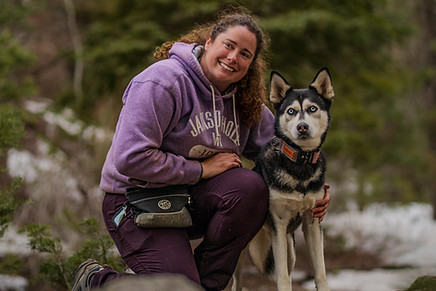
Animal-Assisted Therapy

Animal-Assisted Therapy in Utah County: Support for Children, Teens, Autism, Trauma, and Depression
At Veritas Mental Health, we offer animal-assisted therapy in Utah County as part of our evidence-based counseling approach. This service pairs trained therapy animals with licensed clinicians to support emotional healing in clients of all ages. Meet Katara Meet Destyni, LCSW, C-AAIS
What is Animal-Assisted Therapy?
Animal-Assisted Interventions (AAI) are structured therapy sessions where animals like trained therapy dogs are intentionally included in the treatment process. Research shows that animal-assisted therapy can reduce anxiety, improve emotional regulation, and help clients engage more fully in therapy.
Who is a good candidate for Animal-Assisted Therapy?





Children – AAI helps children feel safe, express emotions, and regulate behavior. It’s especially helpful for those with anxiety or adjustment issues.
Teens – Teens often open up more easily around animals. AAI creates a calm space for emotional processing and connection.
People with Autism – AAI supports communication, reduces repetitive behaviors, and increases social interaction in neurodivergent individuals.
Trauma Survivors – The calm, consistent presence of a therapy animal helps clients stay grounded and feel safe during trauma work.
Individuals with Depression – AAI promotes connection, eases loneliness, and improves motivation and mood.

Is Animal-Assisted Therapy Effective?
Animal-assisted therapy (AAT) offers meaningful support for children and teens struggling with anxiety, depression, trauma, or autism. Our trained therapy dog, Katara, works alongside licensed clinicians to help clients feel safe, connected, and emotionally regulated during sessions.
Research supports what many families already sense instinctively. Interacting with a calm, well-trained therapy animal can reduce stress, support communication, and improve emotional well-being. For children with autism, Katara’s consistent presence helps build trust, ease transitions, and support social engagement without pressure. Teens experiencing depression often report feeling less isolated and more open to connection when a therapy dog is in the room.
Animal-assisted therapy is especially powerful for young clients processing trauma. The presence of a therapy dog can make difficult conversations feel less overwhelming and can help regulate nervous system responses like hypervigilance or emotional shutdown. It creates a nonjudgmental space where healing feels possible.
Unlike petting zoo-style experiences, our animal-assisted sessions are structured, goal-oriented, and guided by mental health professionals. Katara is not a distraction, she’s part of the clinical team. Whether your child is navigating grief, anxiety, social difficulties, or emotional dysregulation, animal-assisted therapy can be a gentle but effective tool for lasting change.





